"The trend of displaying the Nine-Dash Line map on cultural and artistic products is really dangerous. If not prevented and removed from the beginning, this will create precedents later, becoming evidence of distorting national territorial sovereignty " - Associate Professor Dr. Bui Hoai Son commented.

“One day this map will go to many places in the world .” That is the line in the 2nd minute, episode 30 of the movie Flight to You - a movie produced by China and shown on Netflix andFPT Play platforms. There would be nothing worth mentioning if this was not the line that comes with the image of the illegal nine-dash line map, showing China's plot to dominate the East Sea.
On July 8, the audience discovered this image. Immediately, the Cinema Department stepped in to check, pointing out that the image violated Vietnamese law in episodes 18, 19, 21, 24 to 27, episode 38.
On the FPT Play platform, the map image is blurred, but the audience still recognizes that this is a map containing the illegal nine-dash line. The film is not only shown on Netflix and FPT Play platforms, but also on a number of entertainment platforms and "illegal" film websites in the country.
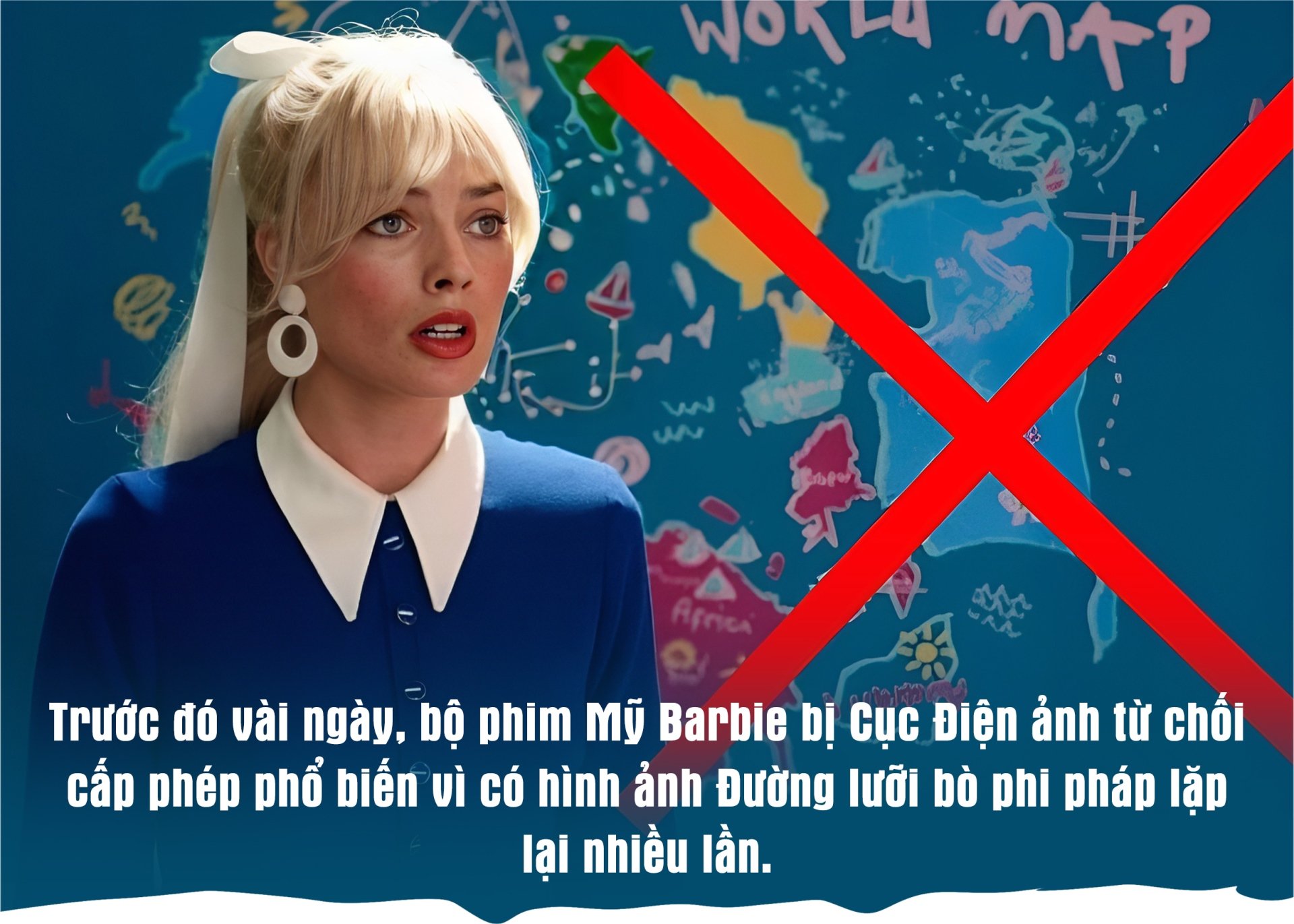
A few days earlier, the American film - Barbie was denied a license to be released by the Cinema Department because it contained images of the illegal nine-dash line repeated many times.
The film censorship board has repeatedly blown the whistle on films that illegally include images of the nine-dash line, such as Uncharted (Antiquities Hunter) starring Tom Holland. The film Everest: The Little Yeti once forced the Vietnamese distributor to receive a fine of 170 million VND, forcing it to withdraw from theaters after more than a week of release.
In 2021, episode 15 of the film You Are My Fortress also featured an image of a map of China with the illegal nine-dash line. The scene is at the 29th minute, the map of China clearly shows the nine-dash line with white dashes in the scene where police officer Hing Ke-Li (played by Bai Jingting) and female doctor Mi Kha (played by Ma Si-chun) meet at the command area.
In March 2018, the Chinese film Operation Red Sea was also withdrawn from Vietnamese theaters due to controversy over the last two minutes of the film. It was a scene where a group of Chinese warships surrounded a foreign ship and announced over loudspeakers: “Attention, this is the Chinese navy. You are about to enter Chinese territorial waters, please leave immediately.” These two minutes were considered completely unrelated to the content of the film but were inserted in an unreasonable way.

Director and cultural researcher Ngo Huong Giang assessed that it is not only now through movies that the new Cow Tongue Line policy is intentionally incorporated, but on Google's image retrieval system or on Tiktok, we also often encounter this image. That shows a comprehensive cyber attack, aiming to realize China's hegemonic ambitions.

Director and cultural researcher Ngo Huong Giang.
According to Mr. Giang, in this comprehensive attack, cinema is considered by China as one of the most important "shock spearheads". "Psychological warfare has never been outdated. On the contrary, it always changes in its expression to suit social circumstances. Cinema is the fertile, ever-changing land to implement China's psychological warfare tactics," Mr. Giang said.
Mr. Ngo Huong Giang believes that culture and entertainment are considered the quickest and easiest way to influence awareness. Good and humane values are also spread by movies and vice versa, this is also a tool to exploit and spread illegal intentions. Propaganda through art is the shortest way to reach people's hearts. Grasping people's hearts means controlling the entire society where people live.
“It is not by chance that China has chosen to insert the illegal nine-dash line into films. The number of fans of Chinese films in particular and films on the internet in general is very large. Meanwhile, most of these films are for entertainment, easy to watch, and easily penetrate the minds of viewers. At some point, this 'cinematic invasion' will become soft power, gradually legitimizing the country's territorial expansion purpose," said Director and cultural researcher Ngo Huong Giang.
Journalist Viet Van - Member of the Central Council for Film Appraisal and Classification (abbreviated as the Film Censorship Council) under the Ministry of Culture, Sports and Tourism - also commented: "We can clearly see that China has a systematic strategy in propagating the image of the illegal nine-dash line. They repeat it over and over again, inserting it into many films and cultural products. They try to turn the illegal and absurd into something familiar."
Besides Chinese films, there are also many films from other countries that use the illegal nine-dash line image. These include: Everest: The Little Yeti (DreamWorks - USA in cooperation with Pearl Company - China) , Pine Gap (Australian production) , Uncharted (Colombia Pictures, PlayStation USA production), Barbie (Warner Bros USA production)...

Explaining this, he said: "China is a very populous market, so many films from Hollywood and other countries want to be released in China. To be released in this market, sometimes they accept and insert the image of the Nine-Dash Line into their works."
Every time China illegally installs the nine-dash line, it faces strong reactions, not only from Vietnam but also from several other countries. However, the government of this country still ignores it, even using more sophisticated methods.
Participating in the film review process, journalist Viet Van shared: "China is increasingly coming up with ways to insert the illegal nine-dash line. Besides the images that appear very clearly, there are images that appear very quickly, or are transformed into doodles drawn by children. The film review board has to pause the image, watch it over and over again to discover it."
Although the Film Censorship Board is vigilant, it still sometimes slips through, such as the case of the film The Little Snowman, which was released about 2 weeks ago, before audiences discovered it. Then the management agencies stepped in.

Not only embedding it in products produced by itself or in collaboration, China is also becoming more and more sophisticated in spreading the illegal nine-dash line. Director Ngo Huong Giang commented that cyberspace no longer has geographical and cultural boundaries. Therefore, China has used its own cultural elements to incorporate the illegal nine-dash line in its activities of contact and interaction with other cultures.
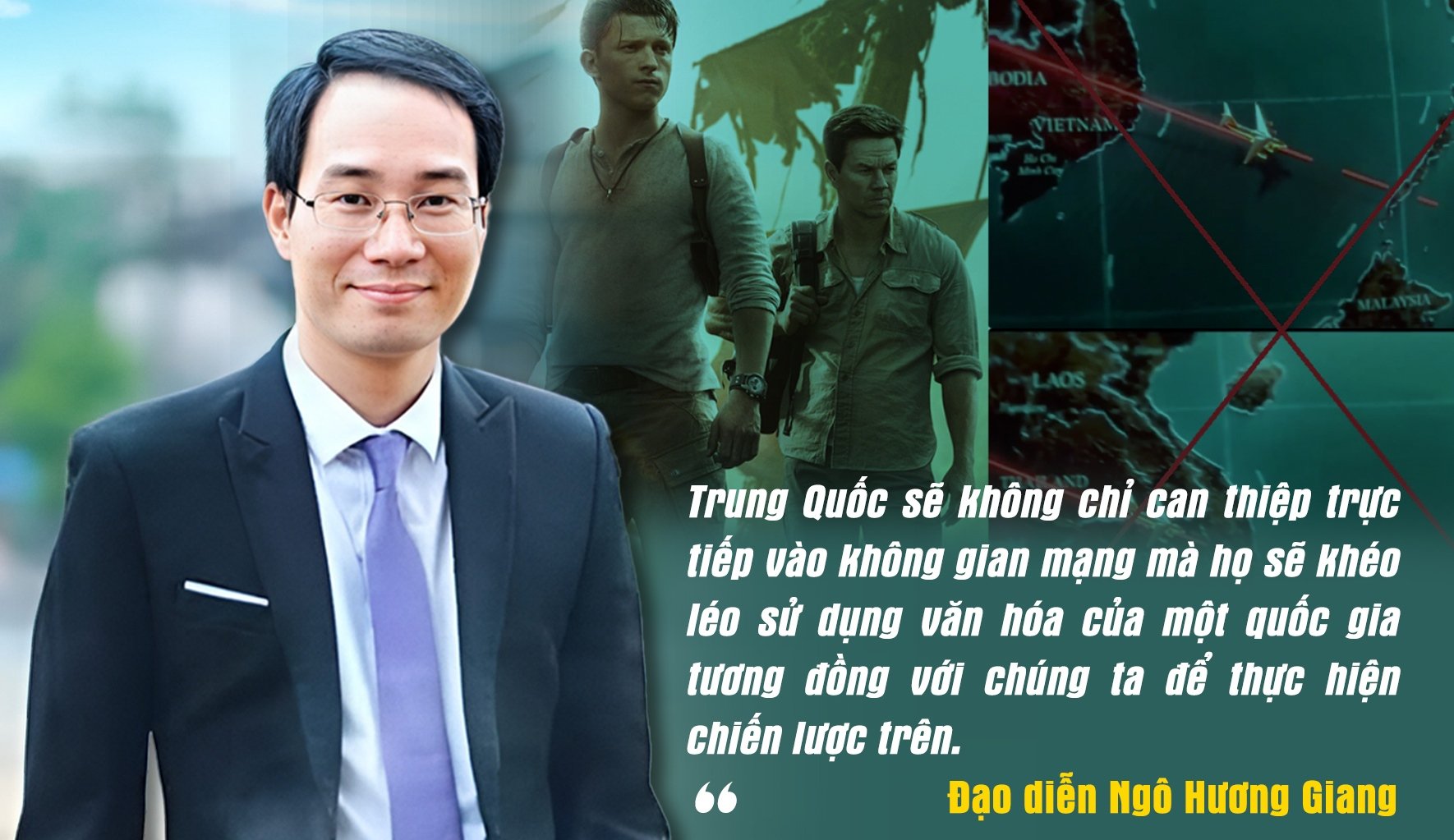
Director Ngo Huong Giang gave an example: recently, young Vietnamese audiences were crazy about BLACKPINK's two shows in Hanoi, seemingly forgetting that the organizer of this show is headquartered in China and has publicly supported the government's nine-dash line policy.
Journalist Viet Van analyzed: “Repeating something, especially illegal things, is intended to influence the public’s psychology and awareness. The young generation, the new generation, a part of the public who do not have a good grasp of history, do not spend much time on historical issues, when receiving these cultural publications, can easily be confused.
The Chinese government has included the image of the nine-dash line in textbooks, propaganda publications, and in cultural and artistic works and events. Chinese companies have also included the nine-dash line in publications, websites, etc., creating a comprehensive and extremely dangerous propaganda strategy. The Chinese people even feel bullied when other countries speak out to claim sovereignty.

Regarding the reason why there are still films and cultural programs with the Nine Tongue Line that "slip through" the censorship process, Associate Professor Dr. Bui Hoai Son said: "The fact that cultural products containing violating content enter Vietnam partly stems from the lax management of some management agencies.
These bodies have primary responsibility for ensuring that content broadcast or displayed is in compliance with regulations and laws."
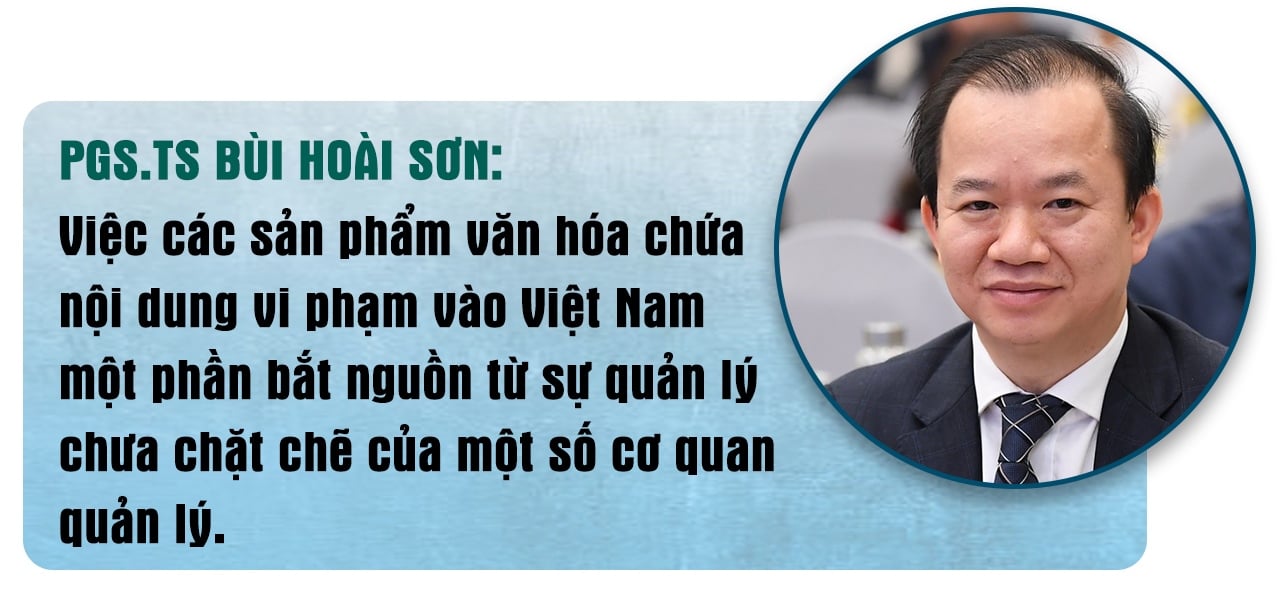
Recently, the management agencies have taken many practical actions to prevent the promotion of the illegal image of the Nine-Dash Line in cultural products, especially movies. Movies that use this image are banned before being released in theaters or banned and required to be removed immediately if they are accidentally omitted.
Deputy Minister of Information and Communications Nguyen Thanh Lam affirmed that the viewpoint of management agencies is to immediately eliminate works that use illegal images of the nine-dash line, without blurring, editing or cropping before publishing.
Mr. Lam added that the Party and State leaders have given very strong direction on this issue. If the situation continues like the one just happened, the responsibility of the managing ministries and branches will be considered.
Deputy Director of the Cinema Department Do Quoc Viet also emphasized: Films that violate national sovereignty over seas and islands will not be accepted and there will be no negotiation or adjustment to be shown.
However, handling violations related to the illegal nine-dash line is not simple. According to Deputy Minister Nguyen Thanh Lam, the Ministry of Culture, Sports and Tourism, the agency in charge of the film industry, is having difficulty forcing cross-border platforms to properly implement Article 21 of the Cinema Law (disseminating films on the internet).
"Almost no cross-border businesses or platforms have provided the Cinema Department with a film distribution plan before promoting the film on their applications. This means they are completely in violation of Vietnamese law," said the Deputy Minister of Information and Communications.
The Deputy Minister of Information and Communications added that in the coming time, the two ministries will coordinate more closely to control cross-border cultural products.
According to director Ngo Huong Giang, in addition to strictly handling products that illegally use the Nine-Dash Line, such as banning screenings and distribution, cultural management agencies need to have a strategy for in-depth investment in authentic cultural products. How can those cultural products be worthy and powerful enough to communicate the core values of independence, sovereignty and territorial integrity?
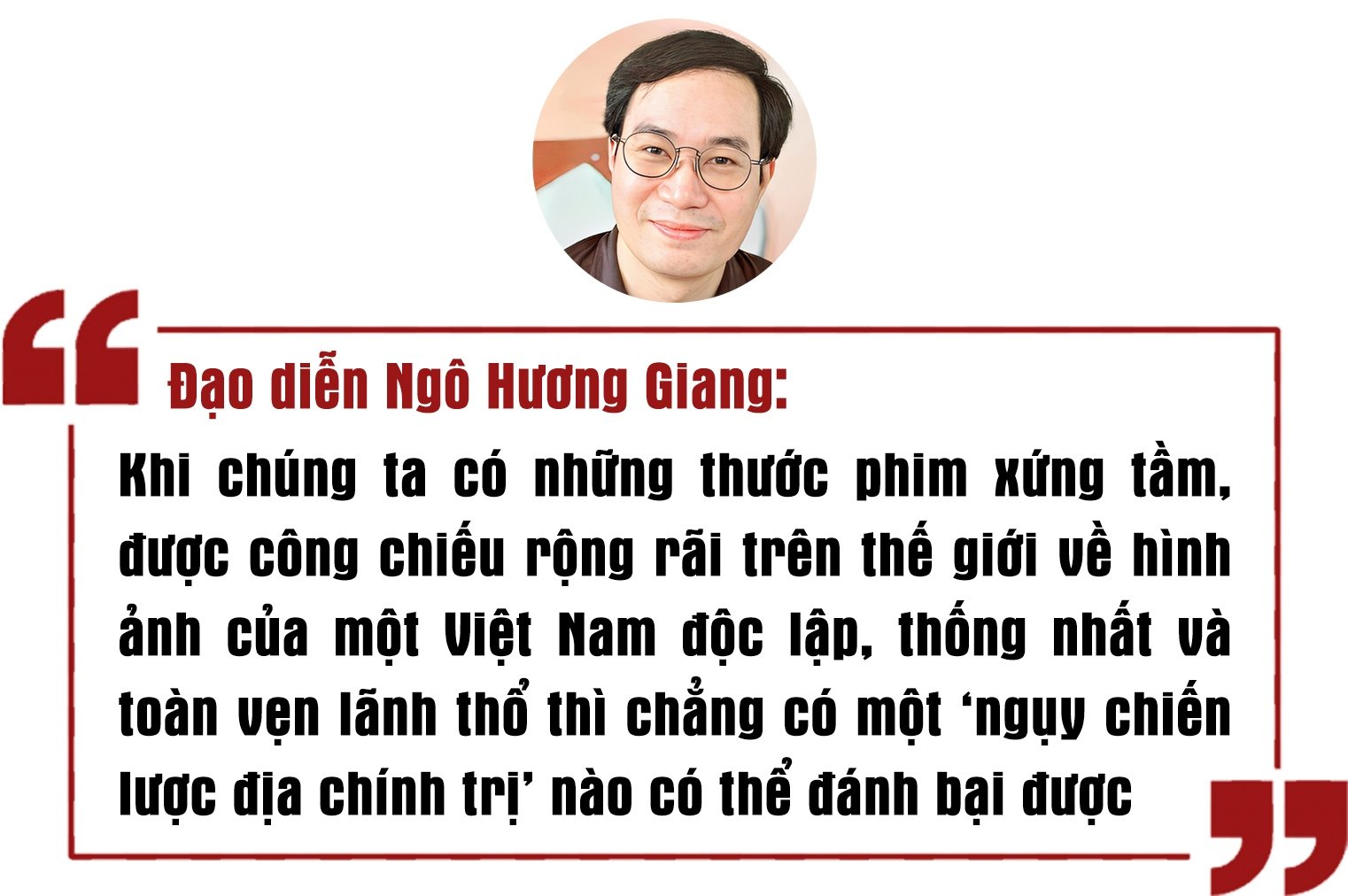
Bui Hoai Son, Standing Member of the National Assembly’s Committee for Culture and Education, director Ngo Huong Giang, and journalist Viet Van all have high expectations for each citizen. Each person needs to develop their own internal strength, intelligence, and national pride, turning that strength into a vaccine that can resist all types of harmful “cultural invasion viruses” from the outside.
Each audience also needs to demonstrate their power by turning their backs on toxic cultural products; speaking up to protect the country's independence, sovereignty, and territorial integrity; constantly creating authentic cultural products to refute the false arguments from toxic cultural products from outside.
Source












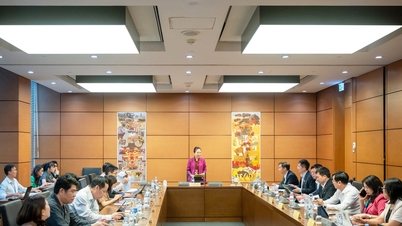
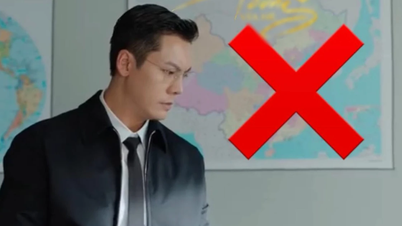




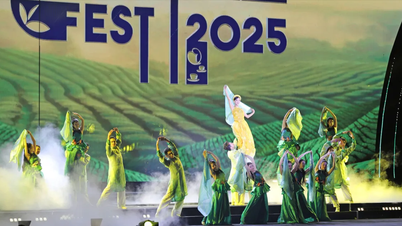



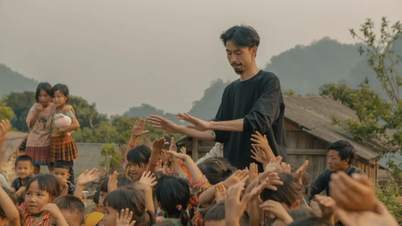
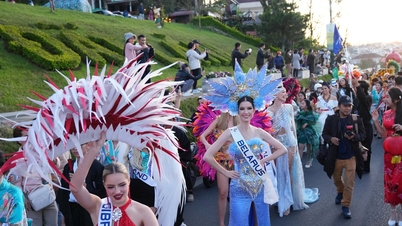






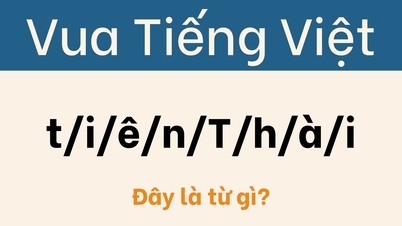
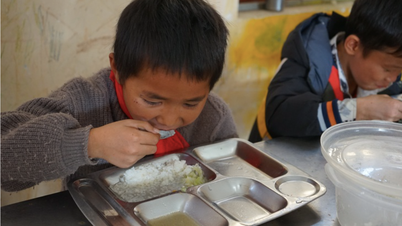



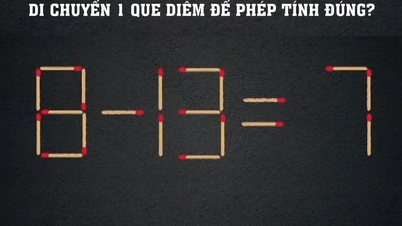
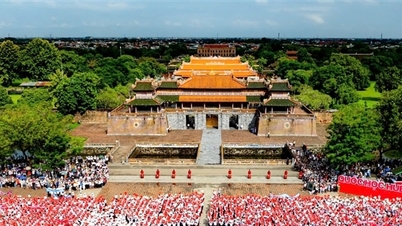

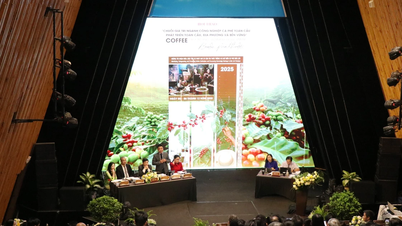








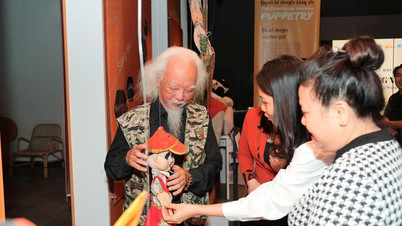
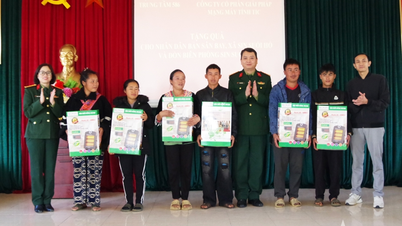



































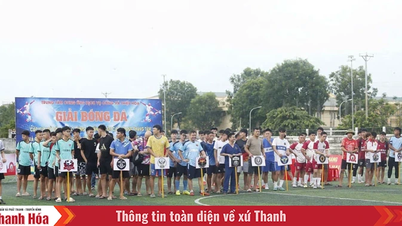

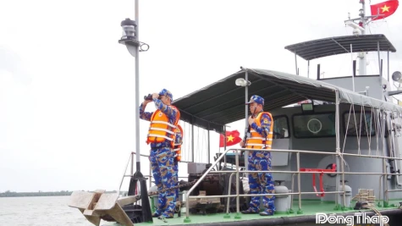

















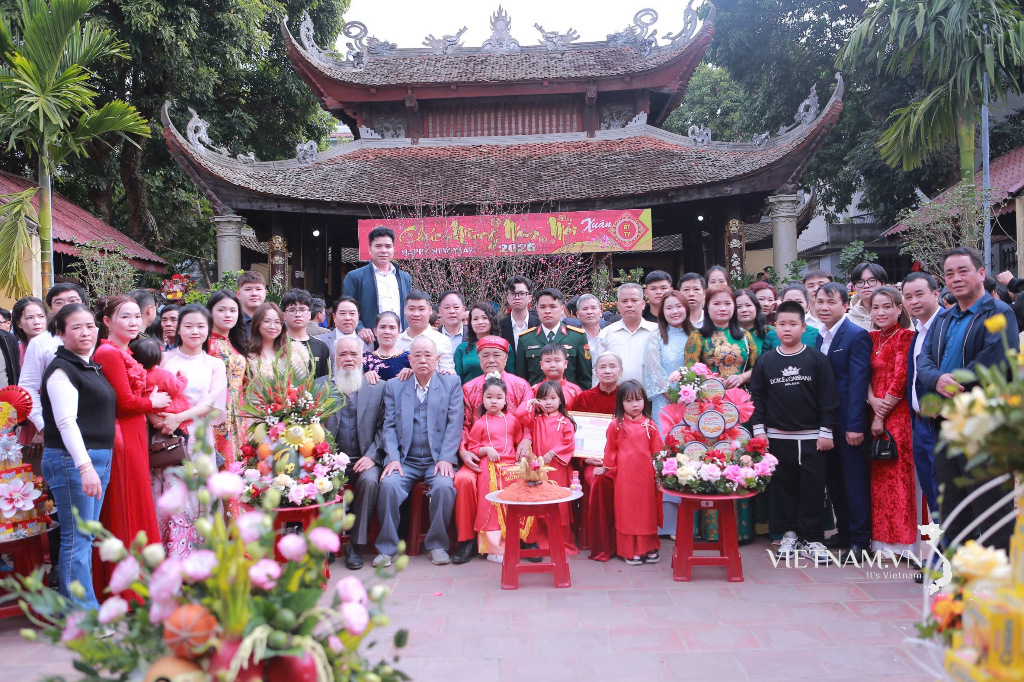





Comment (0)